Yet again, I'm obliged to write a piece on fifteen minute cities/neighbourhoods, Low Traffic Networks (LTNs) and Clean Air Zones (CAZs). All of these traffic management measures, which in many ways are quite different from each other, are generating a lot of controversy.
The protest that took place in Oxford on Saturday 18 February against zoning areas of the city in a bid to manage traffic flows and the counter protest organised by 'anti-fascists' is a pretty clear indication that nuanced, long term, holistic thinking on these issues has left the building. This is how the protest and counter protest were covered by the Oxford Mail: Five arrested as 2,000 attend LTN protest in Oxford 18.2.23. For a more nuanced take on the situation in Oxford regarding the implementation of traffic management measures, there's this: Green Routes - Warwick Vegan | 15.2.23. Anyway, here goes on yet another attempt to encourage some nuanced, thinking on the issues at stake...
POLARISATION AND TONE DEAFNESS
There are genuine concerns about the way traffic management measures are implemented which the authorities tend to arrogantly brush off without any meaningful engagement. Which is why people end up taking to the streets to vent their frustrations. To lump all of these protests together and brand them as 'reactionary' or 'whining petrol heads' is a mistake. For example, the anti-LTN protests that took place in the London borough of Hackney in 2020 were attended by a diverse range of people of all ethnicities, creeds and religions. They were a heartening display of working class unity. I'm still looking into the make up of the protest in Oxford on Saturday 18 February. However, I am aware that among the many people with genuine, unanswered concerns who were out protesting, there were a few questionable elements hanging around in a bid to exploit those concerns for their own nefarious ends.
The presence of those nefarious elements may be the reason why the 'anti-fascists' chose to call a counter protest in Oxford. The 'anti-fascists' could have chosen to engage with those expressing genuine concerns, particularly with regard to the level of surveillance technology that would inevitably be deployed to implement the proposed traffic management measures. That would have involved too much in the way of hard work though, wouldn't it? Instead, the 'anti-fascists' did what they do best after creating a political vacuum when they dismiss people's genuine concerns about local issues, branding everyone as 'reactionary', namely launching a counter protest which took tone deafness to a new level.
Given the polarisation on display in Oxford on Saturday 18 February and the levels of tone deafness and intransigence shown by some elements on the protest and by all of those on the counter protest, I feel the need to attempt to introduce some nuance into the 'discussion', such as it is. That will be nuance based on taking a few steps back and looking at the issues involved from a long term and hopefully, holistic perspective. There will be some uncomfortable truths that have to be faced. Given that I'm taking what can best be described as a bit of a 'third position', I'm not expecting to make many friends with this piece.
WHAT ARE WE ACTUALLY TALKING ABOUT?
There's a worrying tendency by some people on all sides of the debate to treat LTNs, CAZs and fifteen minute cities as pretty much the same thing. Whether that's done with some malicious intent to muddy the waters or is just intellectual laziness is difficult to make out. Whatever it may be, it's bloody annoying because it reduces even further the chances of having a meaningful, informed discussion about the issues at stake. What follows is my attempt to try and define what each of the measures are intended to achieve along with a brief discussion about the problems that arise from each of them. A disclosure - I'm not educated to degree level and I'm not a professional urban planner so these are the views of a (hopefully) reasonably well informed layperson. Having got that disclaimer out of the way, let's go...
LOW TRAFFIC NEIGHBOURHOODS (LTNs)
These tend to be one, and sometimes a few adjacent streets, where physical blocks are put in place to prevent residential roads from being used as rat runs. Which is lovely for the people living in the now quietened streets but pretty hellish for people outside the LTNs who end up having more traffic going up and down their roads. Unless some serious joined up thinking and planning is applied with the aim of reducing overall traffic volumes across an entire town or city, all LTNs do is squeeze the same amount of traffic onto a smaller area of the overall road network. That's because LTNs are bitty, piecemeal measures that make a few people happy at the expense of the many.
From my observations of the implementation of LTNs in London, somehow they always seem to be in the leafier, gentrified streets of the inner suburbs. Which means that the displaced traffic somehow seems to end up in streets that are more working class and ethnically mixed. I'm talking about privileged, predominantly white gentrifiers who to put it bluntly, are effectively waging a class war against their near neighbours. Which is why I've always shown strong solidarity to those protesting against LTNs.
CLEAN AIR ZONES (CAZs)
Basically, these involve zoning off central areas of a city in a bid to reduce traffic levels and as a consequence, reduce air pollution, by restricting the range of vehicles that can enter the zone. They're being implemented in both Bristol and Bath, albeit that what they're actually branded varies. Both cities are in valleys, with it being particularly noticeable in Bath. That means emissions from vehicles tends to hang around, worsening the air quality and posing a threat to the health of residents in the central areas and inner suburbs of both cities. So, in theory, anything that would reduce the number of vehicle movements in the central areas of Bristol and Bath should be welcome. In theory that is...
As with LTNs, if there's not a coherent strategy in place to reduce overall traffic levels across these cities and the surrounding region, all these CAZs will achieve is displacing traffic to the edge of these zones with the subsequent rat running taking its toll on the health of residents in the affected streets. A significant part of that coherent strategy would be a comprehensive public transport network that takes in buses, rail and ideally, trams as well. You do not need us to tell you that public transport in the Avon region, both bus and rail, is utter shite and does not offer anything like a positive incentive for people to leave their cars at home. So, schemes which in theory should be welcomed are going to end up causing problems outside of their boundaries because they're not part of a coherent, long term holistic vision of the future of our urban and suburban areas.
Unlike LTNs, the implementation of CAZs comes with a heavy dose of tracking and monitoring technology that's used to issue fines for those violating them with their vehicles. Fines which a growing number of people are refusing to pay. An educated guess is that many of those refusing to pay the fines are tradespeople with vans who are already forced to operate on tight margins and simply cannot afford any extra costs. Given that the imposition of surveillance and monitoring technology, along with the control that enables, is one of the key components of what from our point of view is the dystopian and authoritarian Fourth Industrial Revolution (4IR), we do have a degree of sympathy with those refusing to pay their fines.
15 MINUTE CITIES/NEIGHBOURHOODS
When I was growing up in Romford, a suburban town in Essex, back in the 1960s and early 1970s, I was living in what to all intents and purposes was a fifteen minute neighbourhood. Many of life's amenities were within a fifteen to twenty minute walking distance. That wasn't just one of each type of shop such as a butcher or greengrocer but a choice of them. That's how the inter-war suburbs that went up in the 1920s and 1930s were developed. The last time I went back to the suburb I grew up in, all of those shops had gone. The replacement was a Tesco Express. The rest were hair salons, estate agents and nail bars. To do the main shop, it's now a drive up to a Tesco Extra up at Gallows Corner or down at Roneo Corner. From being able to walk to get the groceries, you now have to use a car to get them. If you don't have a car, you have to order online and wait for a van to drop the goods off. Either way, it's more vehicles on the road. But, they call this progress...
Then there's decade after decade of planning policy which has assumed near universal car ownership and allowed the outer suburbs and overspill towns to sprawl accordingly. Much of the more recent sprawl has been built on that assumption with the consequence being that any retail provision that is put in tends to be in a location where most people will have to drive there to reach it. We're talking about new developments that all too often, are not that well served with public transport. People living in the outer suburbs and overspill literally have no alternative but to use a car.
As you may be aware from previous posts, the two of us behind this project are non drivers. When we were looking to relocate from Thurrock down to near Bristol to be closer to our family, there were criteria we applied to find an area we wanted to live in. They were easy access to a decent range of shops, easy access to a doctor, dentist and optician, easy access to train and bus links and as a bit of a bonus, easy access to a decent local park. Basically, we were looking for our own fifteen minute neighbourhood. As we now live close to Keynsham town centre, we've found one, with the added bonus of easy access to the local countryside. What we did find from applying the above criteria when we were relocating, is that there are not actually that many areas which can be defined as fifteen minute neighbourhoods.
So when local authorities start zoning up cities such as Oxford and Canterbury, ostensibly in the name of managing and ultimately reducing traffic levels, can I be forgiven for thinking they've got it arse about face? I say this because, if there's a genuine desire for neighbourhoods where a lot of life's amenities are within a fifteen minute walking, slapping lines on a map isn't going to achieve it. The only thing that will achieve it is a radical re-configuration of many of our suburbs and overspill towns. Somehow I suspect that there's not the political will for that, because the task of correcting decades of flawed planning policies is a massive one. As explained in the next section, it is a task that of necessity, will have to be undertaken at some point, preferably driven by the people living in the neighbourhoods rather than imposed from the top down.
By way of conclusion, as with CAZs, fifteen minute neighbourhoods will require a lot in the way of tracking and monitoring technology. With my anti-authoritarian hat on, I can understand why that's causing concern and why that's sparking a wave of resistance to them. Which makes it all the more bizarre that on Saturday 18 in Oxford, the 'anti-fascists' were counter protesting those objecting to top down, imposed measures dependent on intrusive surveillance technology. You couldn't make it up, could you?
A NEW CONCEPT?
With my non-driver hat on, there are aspects of having as many of life's amenities as possible within a fifteen minute walk that appeal to me. The thing is, the concept of fifteen minute cities/neighbourhoods has become so closely entwined with the top down, authoritarian agenda of those pushing the 4IR, it's not something I would want to be associated with in any way. At this point, I would like to propose the concept of 'handy, connected neighbourhoods'. Ones that are shaped by those who live in them and where a lot of what you need is fairly close to hand. However, they have to be neighbourhoods that are connected to each other and to the towns, cities and wider regions they're a part of…
GENERAL COMMENTS...
Hopefully the above outlines differences between LTNs, CAZs and fifteen neighbourhoods and that the problems that arise from their implementation vary in their impact and scope. LTNs are piecemeal, bitty measures but the impacts have a knock on effect beyond the immediate area of their implementation. CAZs, being larger scale measures, have a considerably larger impact. Fifteen minute neighbourhoods are very much in the trial phase at the moment so what impacts they'll have is a bit of an unknown. The scale of the protests against them indicates pretty clearly that people think they'll have adverse impacts.
At the end of the day, these measures tend to rely on a lot of stick. There seems to be little in the way of carrot in the form of a robust public transport network that people have enough trust in to make the decision to leave the car at home and instead, take the bus or train. If anything, with the seeming relentless wave of bus service cuts and the parlous state of the rail network outside of the London commuter belt, there's little or no positive incentive to leave the car at home. As for the 'active travel' option, cycling is for the fit and given the state of the infrastructure and the roads, for the brave!
We could all end up getting bogged down in looking at the specifics of each of these measures, expending a lot of energy arguing about their pros and cons. When you step back and look into the future, it becomes clear that all of these measures, small or large scale, are merely tinkering around the edges. These top down, imposed measures will subject a lot of people to intrusive tracking and surveillance and play a part in the slide towards a more restricted, dystopian future but, they aren't going to 'save the planet'.
If we want a sane, sustainable future, that change has to come from the grassroots upwards. A significant part of that involves some very deep thinking about how we change the way we live and work so we can build that future. What follows next is an attempt to explain why that deep thinking is needed. This is where some pretty uncomfortable truths have to be confronted...
THE FUTURE OF MOVEMENT ON A FINITE PLANET
What follows is basically me thinking out loud on where the heck we go from here. This is briefly introducing what I think the problems are and sketching out a few ideas on how we can work out solutions. So, what follows is pretty much an outline and there will be aspects of that I'd like to return to at some point in the future to look at in greater depth.
HITTING THE LIMITS
We live on a finite planet. There's a limit to the resources we're currently consuming to maintain our lifestyles. While past predictions of when they'll start to run out have proved to be wildly pessimistic, the stark truth is that at some point, they will run out. We may well have more time to seriously consider what the alternatives are than some of the more pessimistic scenarios allowed for but, that doesn't mean we can continue to postpone the hard discussions and struggles we need to have.
We live in a capitalist economic, political and social system whose basic premise assumes endless growth. It's a system based on extraction. You cannot have endless economic growth fuelled by extraction on a finite planet. At some point, the contradictions of endless, extractive growth on a finite planet will become too much and the system will start to judder. It could be argued that the growing financial crisis before the Covid crisis was a symptom of the contradictions of an ultimately unsustainable system making themselves felt. It can also be argued that the Covid crisis was leveraged to cool a juddering economy down enough to start to implement plans to essentially 'reset' the system. 'Reset' in such a way that the material demands of the bulk of the population can be managed downwards while the elites continue to accumulate ever more wealth. But you know, that makes me a 'conspiracy theorist'...
Living on a finite planet, we do need to have some very deep discussions as to how we adapt to that reality while ensuring we all lead worthwhile and fulfilling lives. The 'great reset' or 4IR, call it whatever you want, is not the way to a sustainable future that offers all of us a decent life. The fact that we have to argue against what the 4IR is doing to us, ostensibly in the name of 'saving the planet' while at the same time, fight for a sane, sustainable, fulfilling future that will guarantee our future and that of the planet is immensely frustrating. A system 'reset' is needed but it's one that has to be on our terms.
ACKNOWLEDGING THE LIMITS
The hardest part of all of this is going to be convincing people that we do indeed live on a finite planet and that at some point, we need to think seriously about the way we live. That thinking cannot be separated from the fact that we live in an extractive system that's unsustainable. Ultimately, the answer has to be system change...
The mobility car drivers currently 'enjoy', when they're not stuck in a traffic jam, can only be kept going by the continuing extraction of the planet's resources that are required to build and fuel the vehicles. Then there are the resources needed to maintain and expand the road network. Sure, metals can be recycled but, as the construction of modern vehicles is so complex, recycling 'redundant' vehicles is not an easy process. It's also a process that uses a lot of energy, leading to more demands on the planet's finite resources.
It's going to be a tough call because the system we live under is geared towards an assumption of near universal car ownership. From housing through to employment, things are structured in such as way that the majority of the population have no choice but to drive, otherwise they'd be leading very limited lives. Because it feels like we're locked into a system that's structured in such a way that it's difficult to escape from it and live in a more sane and sustainable way, the majority of people feel there's no option but to keep their heads down and make the best they can of things as they are. It's almost like Stockholm Syndrome where people who can see no alternative identify with the system, even though it's ultimately dragging all of us towards a cliff edge. Also, the enormity of the task of pretty much completely reconfiguring the way we live is such a daunting prospect and would involve so much upheaval, people understandably don't want to think about it.
If we want a future for all of us and the planet, we have to confront these difficult questions. I'm not going to pretend that I have any answers to this. All I'm doing at this point is throwing out ideas and suggestions and then see what happens. Obviously I acknowledge that there are a fair few people who have thought very deeply about how we can move towards a more sane and sustainable society. At some point, I hope to start featuring and linking to their writings on this blog.
SYSTEM CHANGE
While we work out how to bring down the dystopian system we're forced to endure, at the same time, we also have to argue the case that as we live on a finite planet, we need to think about how we can live fulfilling lives within the constraints of the planet. That's a big ask! At some point, the bastards will have to be brought down by force. Before that, there's a lot that can be done to start building working examples of the world we want to see.
If we're going to persuade people of the need for some pretty fundamental changes in how we live, they will want to see some alternatives that work. This is what we're talking about:
Prefigurative politics are the modes of organization and social relationships that strive to reflect the future society being sought by the group. According to Carl Boggs, who coined the term, the desire is to embody “within the ongoing political practice of a movement […] those forms of social relations, decision-making, culture, and human experience that are the ultimate goal”.[1] Prefigurativism is the attempt to enact prefigurative politics.
Wikipedia – https://en.wikipedia.org/wiki/Prefigurative_politics
That's pretty much where I want to leave things for the moment. As ever, constructive criticism and comradely debate on the many issues raised in this piece are always welcome...


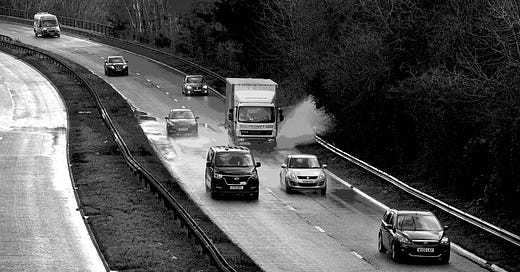





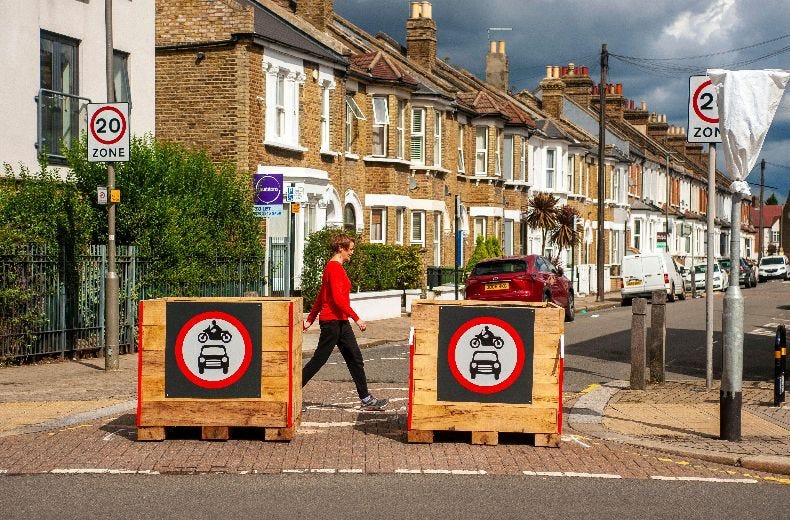

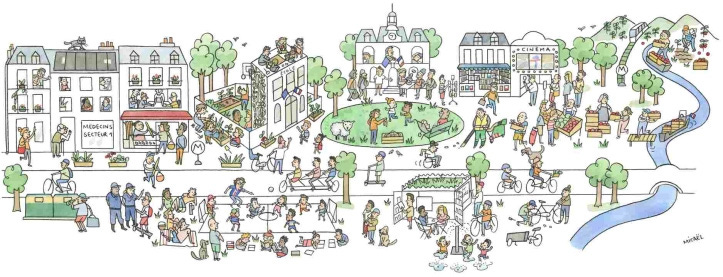

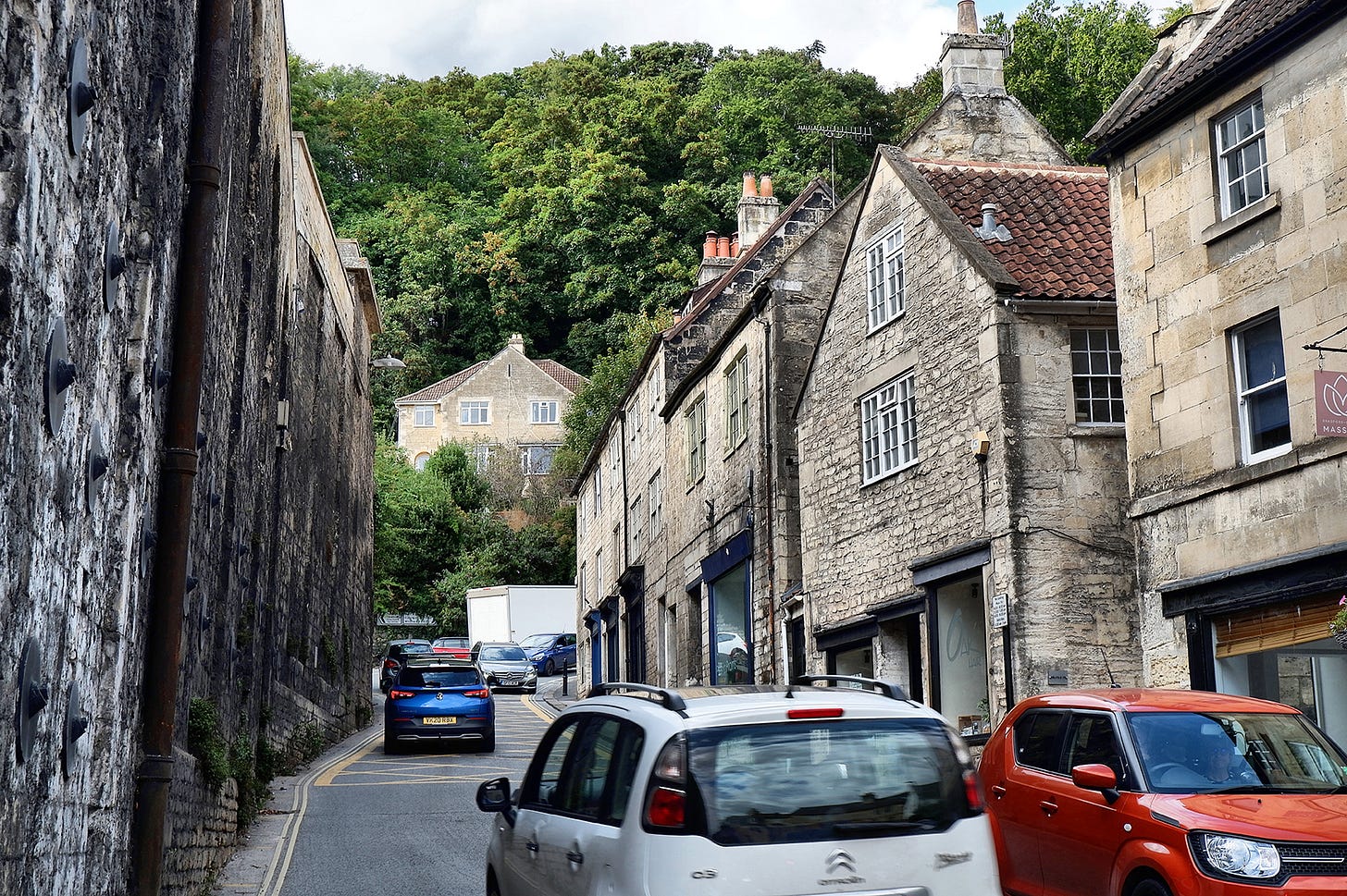

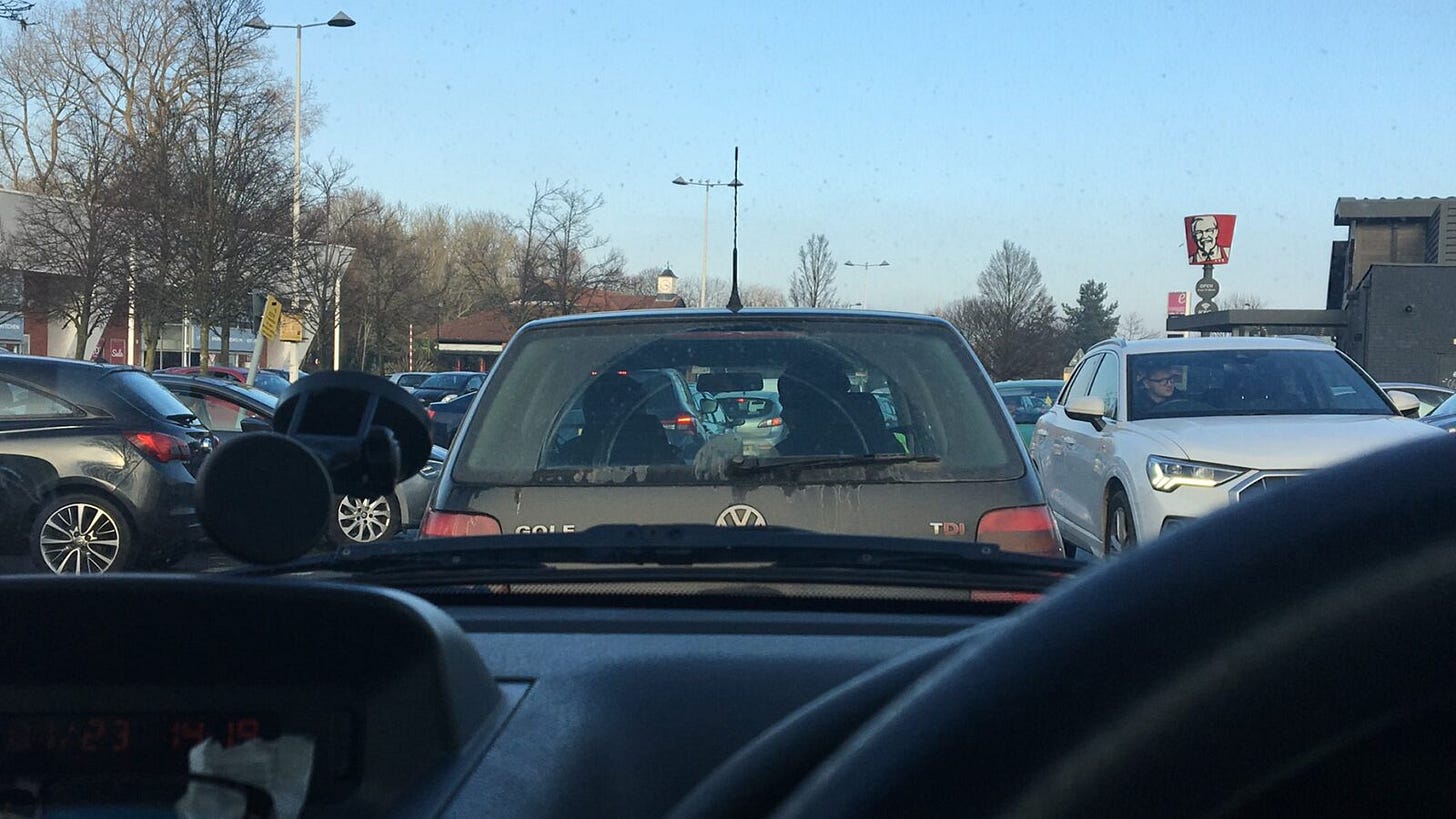

I'm feeling such a relief to read what I'm thinking in someone else's words!